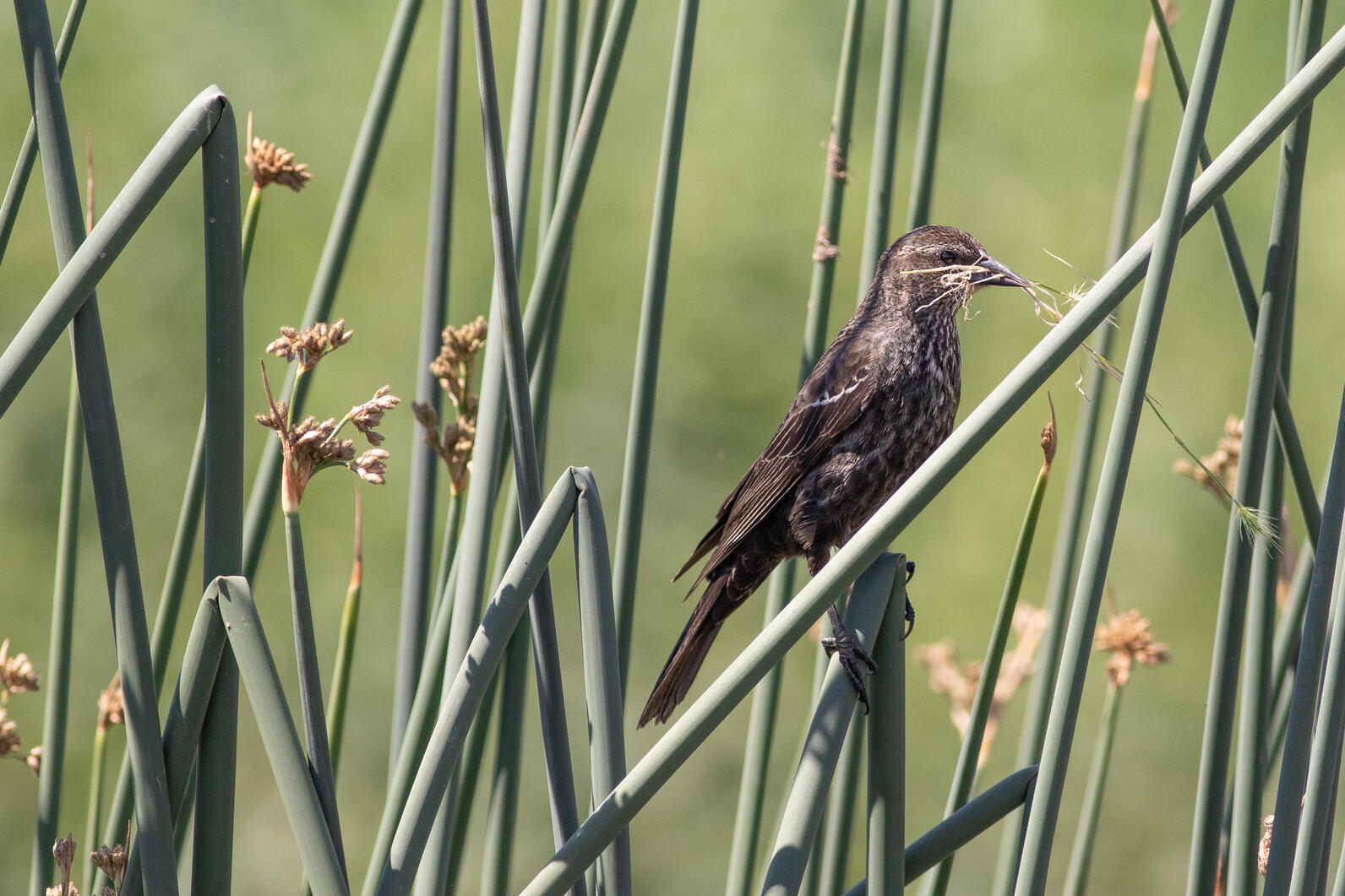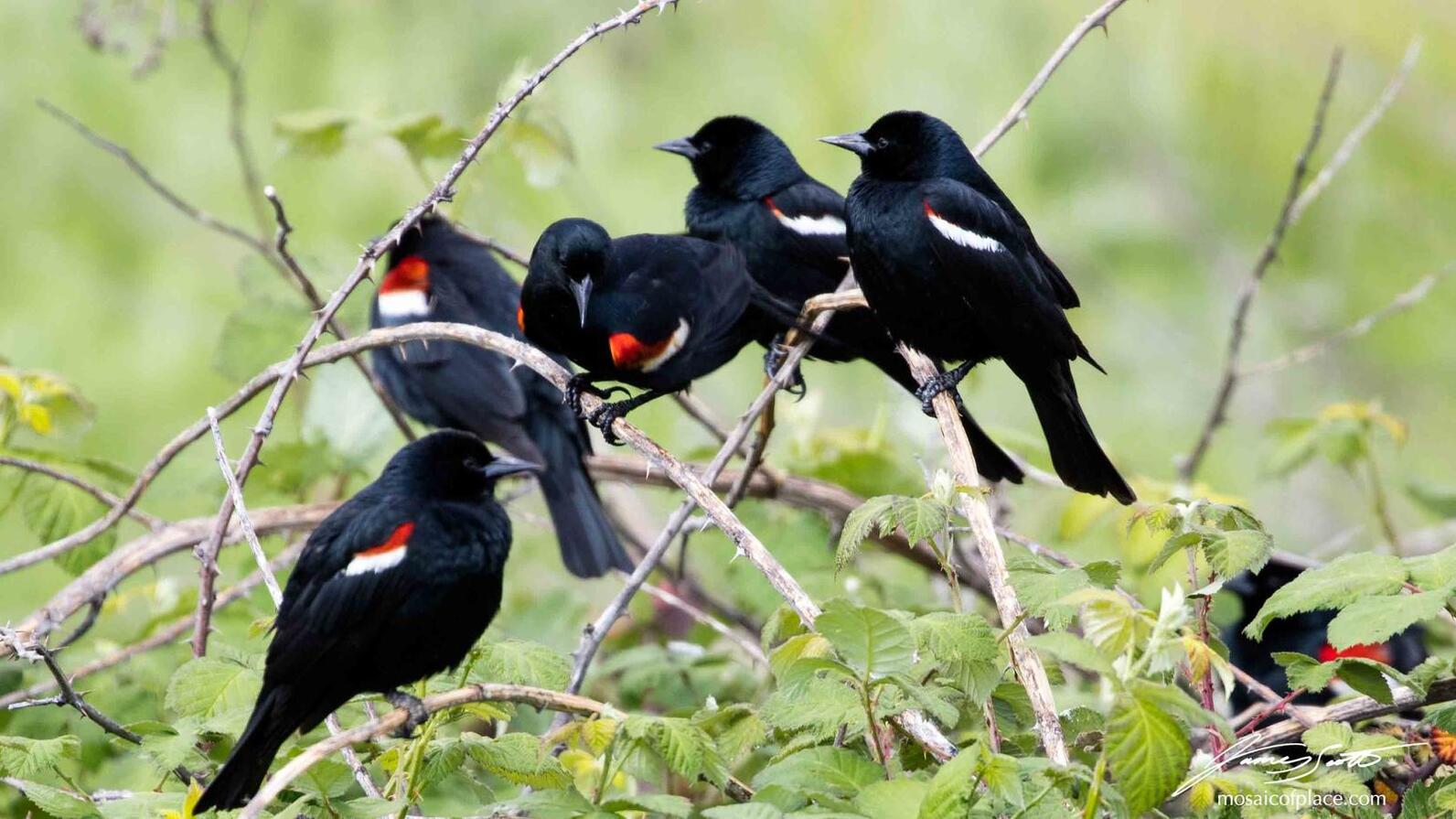Each spring and summer, I head out into fields and marshes around the Central Valley searching for colonies of threatened Tricolored Blackbirds. These dazzling birds have brilliant red shoulder patches with a white wing bar and a buzzing, catlike song.
The species is a California icon but is very vulnerable due to drought and habitat loss. The good news is that we've successfully worked with our partners to protect Tricolored Blackbird colonies for the past seven years. Together, we're stewarding new generations of a much-loved bird in the Central Valley landscape.
As 95% of wetlands have disappeared from the Central Valley, threatened Tricolored Blackbirds adapted by nesting in dairy forage fields. California family dairy farmer Luciana Jonkman says, “the birds are attracted to the dairies because it’s a safe environment for them to nest and there’s an abundance of food for them to feed on.”

However, there was an unforeseen danger to the birds. Tricolored Blackbird chicks often have not yet left the nest when farmers need to harvest their crop. If harvested, tens of thousands of nests and chicks can be lost in a single field. If we didn't take immediate action, the species' population could collapse.
To protect these chicks, Audubon established a conservation partnership with Natural Resources Conservation Service (NRCS) in 2015 to support dairies to delay harvests so chicks could successfully fledge. This program compensates dairies to help recover losses from delaying harvests.
Take a look at a Tricolored Blackbird colony
“The fact that the birds return to nest on dairy farms year after year shows how important our forage fields are to the species’ survival and to biodiversity as a whole,” said Vander Woude, who owns and operates Vander Woude Dairy in Merced County. “Environmental stewardship is part of our job. We take pride in being caretakers of the land and the animals that live here.”
Audubon California's Tricolored Blackbird initiative is a collaboration between farmers, agricultural associations, government agencies, researchers, and conservation organizations that recognize the importance of a multi-faceted and cooperative approach to promote the long-term survival of the Tricolored Blackbird. This program demonstrates the effectiveness of partnerships between conservation groups and agricultural interests to support farmers and protect birds.
We are grateful to all our partners, including Western United Dairies, Dairy Cares, CA Dairy Research Foundation, Farm Bureau, USDA Natural Resources Conservation Service, CA Department of Fish and Wildlife, and our Audubon community.
How Dairy Cares saves Tricolored Blackbirds
Audubon's 2019 report, Survival by Degrees found that Tricolored Blackbirds could lose up to a third of their current range even under the least severe climate change scenario. Working lands like this dairy represent one of the best hopes for conservation. While this year’s report is promising for the species, there is no doubt that climate change and worsening drought conditions will continue to pose challenges to Tricolored Blackbirds and farmers, making ongoing partnerships essential to the species' survival.
If you are a landowner, learn more about how to partner with Audubon to protect Tricolored Blackbirds. To learn more about this program, watch a webinar on Saving the Tricolored Blackbird, hosted by the Wintu Audubon Society in Northern California.





